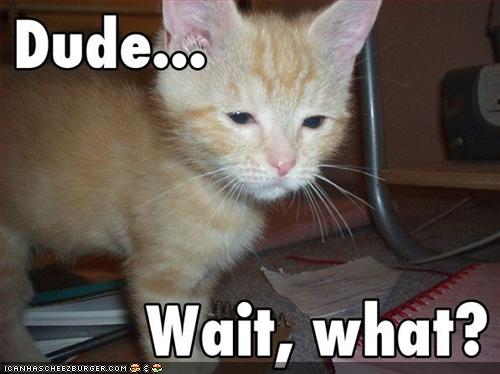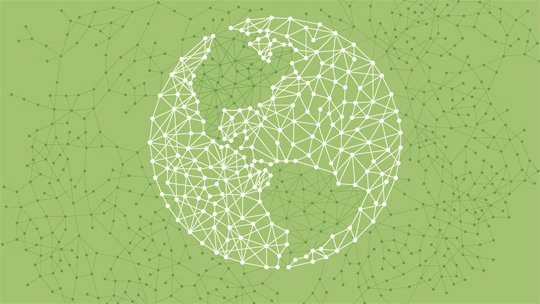Facebook rolled out the razzle and the dazzle during f8 2011. Yet behind all the glitz, all the music and all the cool were fundamental changes that put Facebook in direct competition with Google.
Facebook Launches Search

Did you miss it? I almost did too. It was wrapped up in the Social News Apps part of the presentation. Zuckerberg demonstrated how you would see all of the stories your friends were reading about a certain news topic.
That’s search.
Facebook is returning a set of results on a topic curated by your friends. In search speak that’s returning a set of documents based on a query, sorted by a social signal. They’re talking about it in relation to news but they could do this with any type of document or media.
The Open Graph

Facebook can do this because of the Open Graph. Both Zuckerberg and Bret Taylor spoke about building on and expanding the Open Graph with Apps. The original Open Graph App is the Like button, and we’ve been dutifully clicking that button for well over a year now, telling Facebook where we are and what we Like. People are buzzing about the new Open Graph Apps, and they should be excited.
Web Intents
The new ‘Read’, ‘Listen’ and ‘Watch’ functionality is essentially a frictionless, more nuanced Like. Some of these new verbs will be delivered through Open Graph Apps from media companies like Spotify and Netflix. Facebook doesn’t want to interrupt your activity attention.
No more clicking.
But this isn’t something that Facebook is sitting in a room dreaming up laughing a Dr. Evil laugh. A lot of this is also being explored via Web Intents, a reference to an Android feature. A great post by Glenn Jones describes web intents and an idea for a web intents management dashboard, banishing pesky button sluts from the Internet landscape.
At f8 Facebook announced it wants to be that dashboard.
Patterns

There was a lot of talk about uncovering patterns in the behavior of your social graph. Maybe Facebook thinks patterns is a more palatable term than algorithm, but that’s basically what they’re talking about. The Open Graph contains a representation (i.e. – index) of the Internet, but ‘crawled’ and ‘indexed’ by people through social gestures or web intents (choose your buzzword).
Thus far the only real social gesture has been Like. New Open Graph Apps reduce the friction and increase the diversity of social gestures entering the Open Graph. Facebook wants more data to mine and they want better context with that data.
Facebook is making it easy for you to help them build a better web index.
Timeline
So why all the focus on the timeline? I think there is a human desire to delve into our past, whether it be scrap-booking or genealogy or plain nostalgia. Facebook seems to be the platform where a lot of those connections (to those high school ‘friends’) persist. So it makes sense from that stand point.
But it also provides a very clear infrastructure for ensuring that important documents are preserved. It’s not easy to find certain pieces of content from five years ago. Even with savvy search parameters locating old content can be difficult. Trust me, I do this a lot and I’m amazed at how tough it can be.
Remember, digital content is exploding! Capturing the ‘right’ and ‘good’ content is getting more difficult. Facebook is using crowdsourcing to tackle this problem via Open Graph Apps and tucking it away in a time based archive for easy retrieval.
If the timeline works, Facebook creates a well curated repository of documents and social gestures.
GraphRank

The other concept introduced was the idea that Facebook can understand what is personally relevant to you through GraphRank. I’ve seen a lot of people complain about EdgeRank (which I assume has now been replaced by GraphRank). People didn’t want Facebook to make those decisions and Eli Pariser was irked and sold a lot of books.
But Google wants the same thing really. They’ve talked about psychic search and about knowing what you want before you realize it yourself. Here’s what Eric Schmidt had to say four years ago.
“The goal is to enable Google users to be able to ask the question such as ‘What shall I do tomorrow?’ and ‘What job shall I take?’ ”
“We cannot even answer the most basic questions because we don’t know enough about you. That is the most important aspect of Google’s expansion.”
That puts Google+ into perspective doesn’t it?
Search Re-imagined
GraphRank seems like the introduction of a continuous frictionless search. Sure, it’s passive search but there are more and more ways to pivot that into an active search. Isn’t this just another take on what the Google Related Toolbar is doing?
My ‘More Like This‘ concept could now be executed without a click and instead deliver a set of related ‘stories’ when I hover over that item. One only needs to check out dontclick.it to see what could be.
Search as we know it today may not be what it looks like tomorrow. Facebook made me think that the way we discover information could change and that the definition of search is mutating.
TL;DR
Facebook launched their version of search at f8. It might not be the traditional search you imagine, but it’s search nonetheless. Building on the Open Graph, Facebook will rely on Open Graph Apps to create a more diverse and frictionless social stream that will become the bedrock for information discovery interfaces of the future … and past.
The Next Post: Cut Up Learning
The Previous Post: Worst SEO Title Ever

Comments About Facebook Launches Search
// 6 comments so far.
@iloveGarick // October 03rd 2011
Curiouser and curiouser! But does it really matter when search is still ranked/dominated by Google and the increasing attention to Google Plus for search results?
I mean, does anyone use Facebook as a search engine? To be honest, if I ever want to find knowledge on just about anything, I still turn to Google as my first and foremost source of information.
To prove my point, just look at the tab to the right. At this moment, there are 13 Google +1’s as opposed to only 9 FB likes.
AJ Kohn // October 03rd 2011
Garick,
I too turn to Google when I want to find something. I’m just not convinced that’s automatically how we’ll discover information in the future. If Facebook can continue to dominate our attention, they have the capability to begin to surface information based on our own social gestures as well as those in our social graph.
At first I think this might only take a small piece of the search puzzle, those times when something you stumble across (perhaps a news story) leads to another question. But if Facebook can begin to answer those questions within their own interface, I think it’s a slippery slope (and one really good UX treatment) away from a secondary active search within that platform. Once that occurs I think it gets interesting.
That experience may be longer off than I think, but I’m still impressed with how big Facebook is thinking and where they seem to be headed.
Teresa Ashley // October 03rd 2011
I’ve been reading your blog for a few weeks and somehow never caught on to the meaning of TL;DR. What does it mean?
AJ Kohn // October 03rd 2011
Teresa,
First off thanks for reading. As for TL;DR, it stands for Too Long; Didn’t Read. It’s often placed at the beginning of posts but I tend to use it as a sort of summation of what I’ve written instead.
Brian F // January 17th 2012
Facebook might do that if they are here a year from now. Our Google+ signups, user engagement and traffic are going through the roof and it’s all organic; people just love our service. They come to search and then want to find out more about our fascinating Google+ service.
AJ Kohn // January 18th 2012
I appreciate the reply Brian even though it’s clearly an impersonation of a Google employee.
Sorry, comments for this entry are closed at this time.
You can follow any responses to this entry via its RSS comments feed.